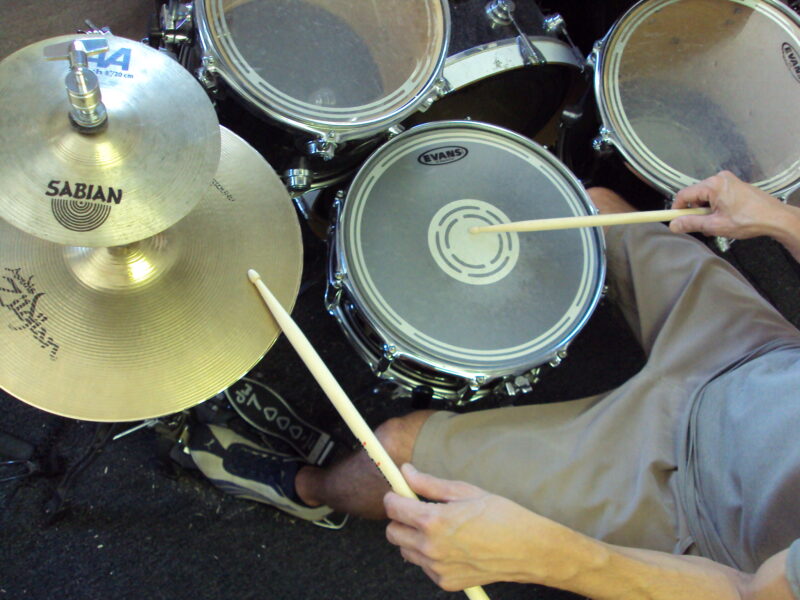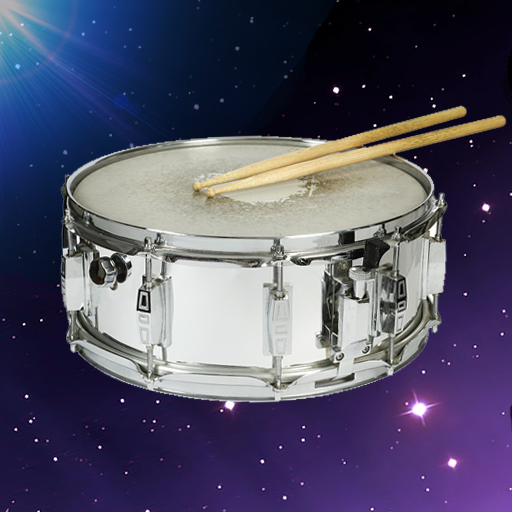
Don’t start learning drums and then quit…

Many people do, unless they’re taking drum lessons from a highly experienced instructor. Why? The drumming path contains a bunch of common pitfalls that turn drummers into quitters. Usually those who end up leaving the drums behind are bored with their drumming, unmotivated to practice, or simply unaware of how to progress further. Not to worry, these issues are all easy to prevent! All you need is a plan and some knowledge, inspiration to tackle the instrument, and materials to train from.
I feel that an overview of the training path on drums is important for beginning drummers to have, to steer them away from mistakes and discouragement, and especially from quitting.
Knowing your plan can bring you success!

As a drum instructor, I have always felt that it was part of my job description to come up with a good answer this question: What is the most ideal training plan for drummers? I felt that way because a plan is possibly the most important part of the path to being a great drummer. It helps you avoid mistakes and setbacks, and gives you an overview of your training and specific goals to shoot for. It organizes your progress.
Your long term goals

Maybe you were born with an unstoppable passion to become the greatest drummer ever. Or, you may have discovered an amazing drummer who inspires you to emulate them as a role-model. Or you may just be curious about drumming, which is great too! Knowing what you want to experience with drumming is important for creating your training strategy, after you get the basics down. You may want to ask yourself:
- Do you consider drumming fun?
- What would be your ultimate experience as a drummer?
- What style(s) of music are you interested in playing?
- Do you want to be in a band and/or perform at live music venues?
- Would you like to make drumming into a career?
- Do you know of any drummers who inspire you?

Your goals may change…
When I was younger and first starting to learn drumming, I would have answered the above questions much differently than I would now. I was half-interested at that point, but after a few years I got really into it and it became my life. So even if you’re just curious about drumming, it’s worth getting into!
Start your drumming path with the basics.
If you are just starting out on the drums, here are some basic goals you should begin with.

Goal #1: Learn to play with songs.
This is a great first step because in order to achieve this goal, you must first gain all of the most important basic drumming skills anyway. This approach also gives you something rewarding to apply your skills toward, as well as a realistic taste of what drumming is all about. (The “Play Drums Now” training program is engineered to help drummers reach this goal in the fastest way possible. Read more…)

Goal #2: Become a versatile drummer.
Expand your range of comfortable styles and tempos in music, and get experience working on each of the skills in drumming. This step is setting you up for the rest of your practicing career.

Goal #3: Set new goals, to become whatever kind of drummer you want to be.
For example: develop creativity, learn salsa and jazz and metal drumming, jam and/or perform with a funk band, do video recordings for Youtube, teach lessons, get rich, etc. Anything is possible! You can take drumming in whatever direction you want to.
Where does the drumming path lead?

Many people unfortunately think the phrase ‘starving artist’ means that every artist has to starve, unless they are ‘lucky enough’ to make it big. This is the wrong interpretation! You don’t have to starve OR make it big, just because you’re a drummer. Instead, I think this phrase means that some artists fall so in love with their work that they are willing to starve if they have to, in order to create their art! I can relate to that, even if it seems pretty illogical.
Fortunately, there are incredibly various opportunities in the musical world. While it can be difficult to directly exchange your drumming talent for a steady income, it is very possible – and there are also other ways to work in the music industry.
Here are some ideas to ponder, that would keep you connected in the music industry and also give you opportunities to pursue your own drumming further. I personally have some experience with many of these, and have found them all highly enjoyable! Be creative, I have seen people invent careers… these are just some ideas to begin with.
Good Career Opportunities For Drummers
- Drumming performance (live and/or recorded, with one band or various artists)
- Music composition / production / recording (for sale as songs / albums, for tv / radio / film placements, for royalty-free use, etc.)
- Drum education / instruction (one-on-one, through a school, in a clinic / convention setting, and/or via video / writing)
- Music equipment sales and/or repair
- Drum tuning and tech services (in-home or in performance settings)
- Sound engineering (at live shows, events, and recording venues)
- Venue and/or stage operations (lights, ticket sales, booking, setup crew, etc.)
- Drum equipment invention / development / manufacturing
- Marketing / management for drummers and/or bands
- Photography, videography, and/or graphic design in the music industry
- Web-based design, maintenance, commerce, etc. in the music industry
Start playing drums now…
Drumming is one of the best things you can learn to do as a human being. I know of very few things that are remotely as fun as drumming, while also being healthy, challenging, virtuous, and humanitarian!
